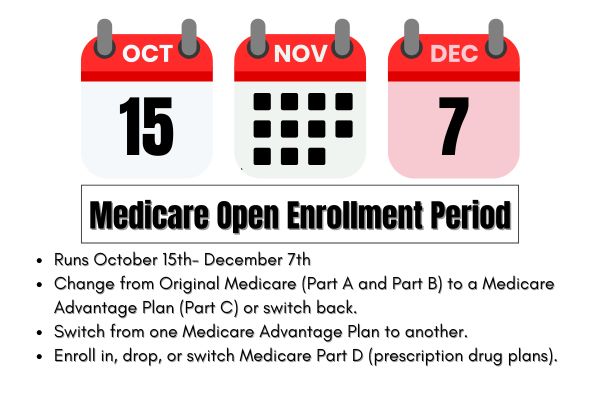Premiums and Out-of-Pocket Costs
The average monthly premium for Medicare Advantage plans in California for 2026 is $13.99, though many plans are available with a $0 premium, excluding the standard Part B premium of $185. Knowing these costs, including potential copayments for preventive services, is crucial for budgeting your healthcare expenses.
Prescription Drug Coverage

Many Medicare Advantage plans include Part D prescription drug coverage, which is essential for managing prescription medications costs. Reviewing the plan’s formulary helps to understand covered drugs and any associated out-of-pocket costs, including the part d premium. Additionally, exploring various prescription drug plans can provide further options for coverage.
Comparing Medicare Advantage Providers
Comparing Medicare Advantage providers is essential to finding a plan that meets your specific needs. Consider factors such as additional benefits, plan availability, and the quality of services provided.
This section will introduce key providers and their offerings.
Aetna Medicare
Aetna Medicare is known for its high customer satisfaction in areas like appointment accessibility and care coordination. Their plans often include additional benefits that enhance the overall healthcare experience.
Anthem Blue Cross
Anthem Blue Cross offers a range of plan options, including HMO, PPO plans, and POS plans, catering to various needs. Serving multiple regions in California, Anthem Blue Cross is known for its comprehensive benefits and flexibility.
SCAN Health Plan
SCAN Health Plan focuses on senior independence and community engagement, offering a variety of HMO plans such as SCAN Affirm and SCAN Balance, including HMO C SNP. With a satisfaction score of 672, SCAN Health Plan is dedicated to providing quality care for its members.
Choosing the Right Medicare Advantage Plan

Choosing the right Medicare Advantage plan involves evaluating your healthcare needs, budget, and the available options. It’s a critical decision that can significantly impact your healthcare experience and costs.
This section will guide you through the process, from assessing your needs to comparing plans and consulting licensed insurance agents.
Assessing Your Healthcare Needs
Knowing your healthcare needs is the first step in choosing a Medicare Advantage plan. If you have chronic conditions, look for plans that offer specialized management services.
Plans with lower out-of-pocket maximums may be more suitable than most plans if you anticipate frequent use of healthcare services.
Comparing Plan Options
When comparing plan options, consider the additional benefits each plan plans offer, such as dental and vision coverage, as well as the plans offered. Additionally, you can compare plans to ensure you choose the best option for your needs.
Review the coverage of specific healthcare providers and facilities that are important to you to ensure they are included in the plan’s network.
Consulting Licensed Insurance Agents
Consulting a licensed insurance agent can provide personalized advice based on your unique health situation and financial considerations. Agents can simplify the process of navigating various plan options and help you find the best fit for your medical insurance needs.
Enrollment Periods and Eligibility
Knowing the enrollment periods and eligibility criteria is crucial for timely enrollment in Medicare Advantage plans.
This section will outline the different enrollment periods and who is eligible for these plans.
Initial Enrollment Period
The Initial Enrollment Period is a seven-month window that starts three months before you turn 65 and ends three months after your birthday month. This period is critical for selecting and enrolling in a Medicare Advantage plan that suits your needs.
Open Enrollment Period

The Open Enrollment Period runs from October 15 to December 7 each year. During this time, you can make changes to your Medicare Advantage plan, switch plans, or revert to Original Medicare.
Special Enrollment Periods
Special Enrollment Periods allow you to enroll in or change plans outside the typical enrollment windows due to specific life events, such as moving or losing other health coverage.
Knowing these periods ensures you don’t miss out on coverage options.













